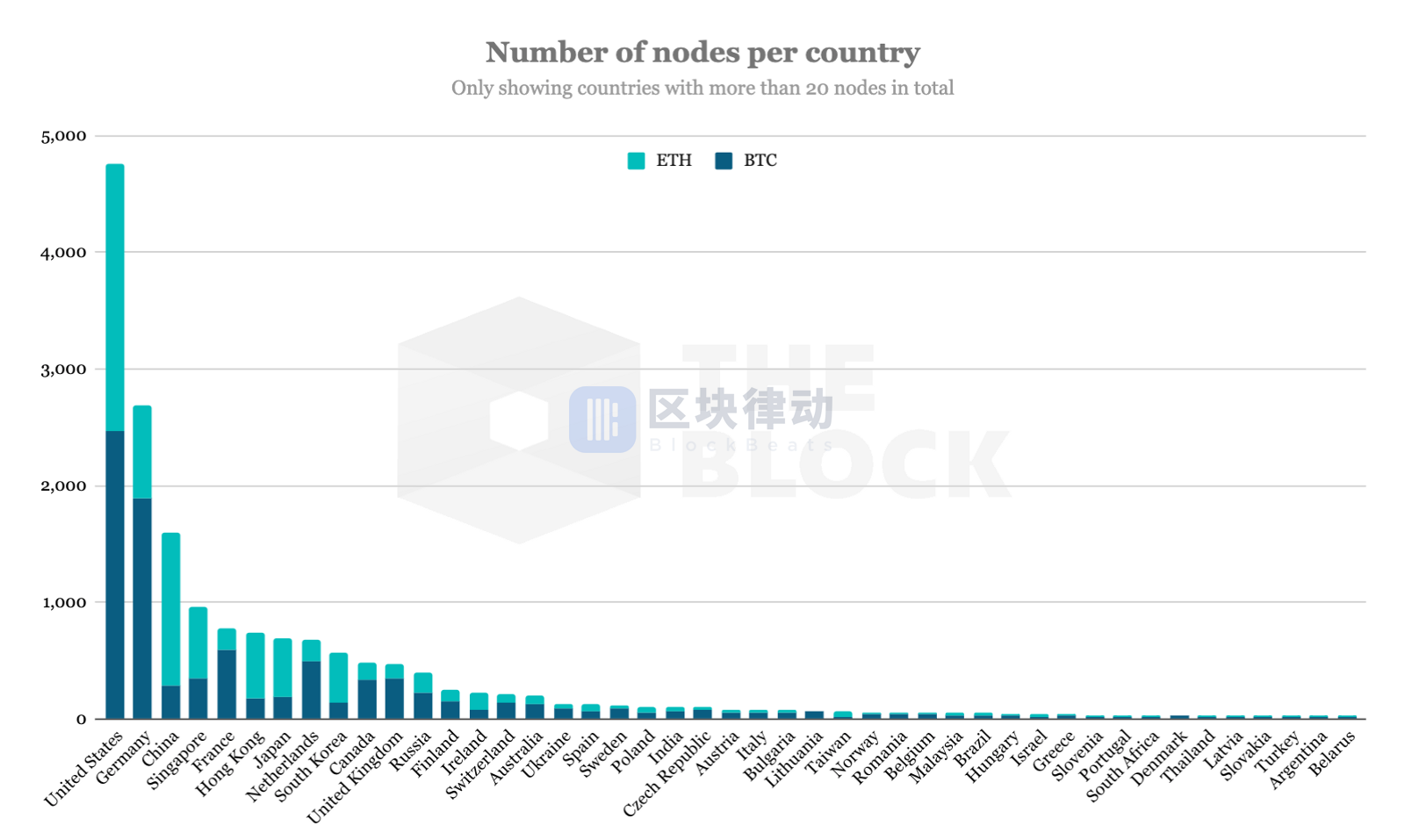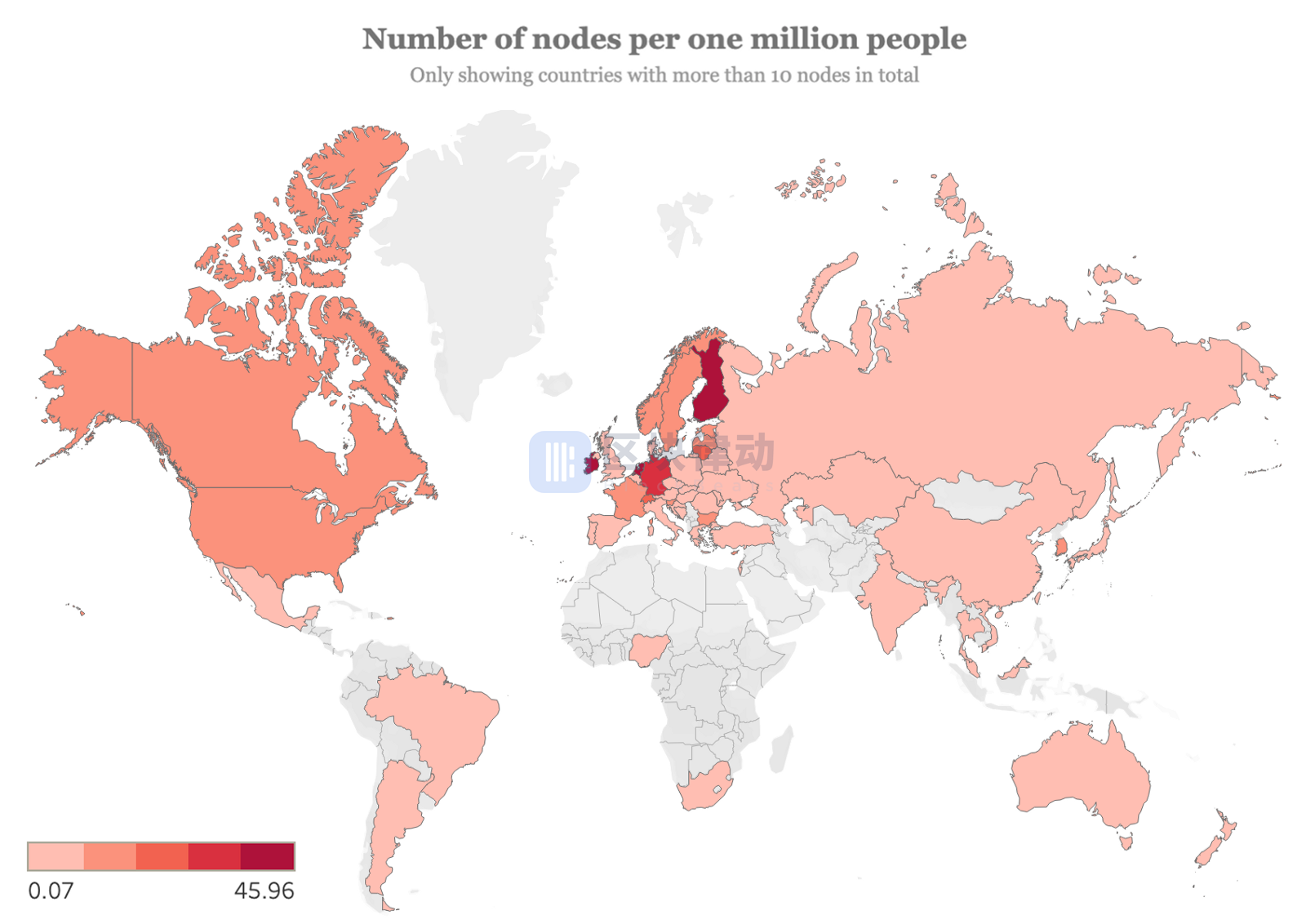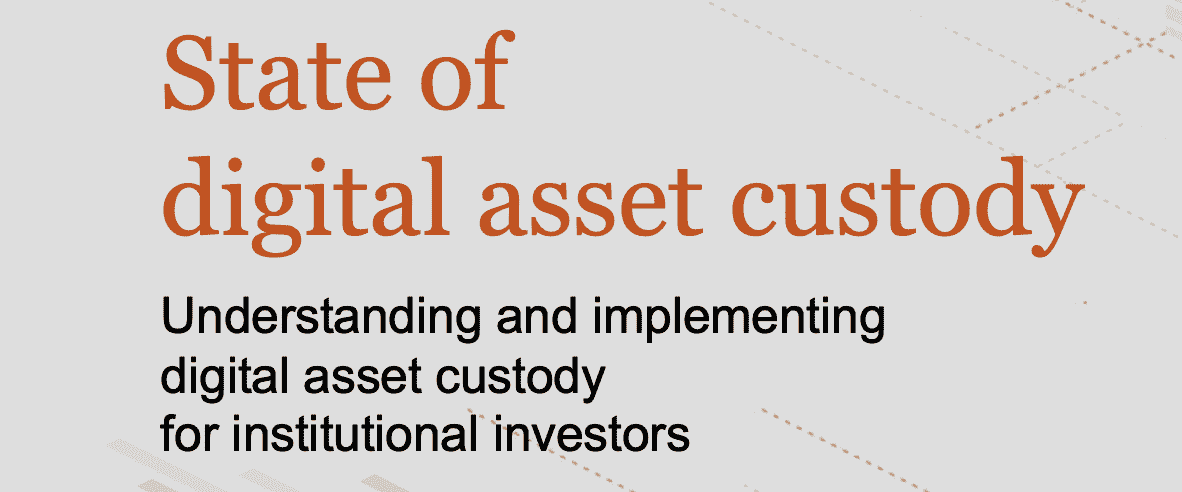Data analysis: a summary of the geographical distribution of Bitcoin / Ethereum global nodes
BlockBeats news. Decentralization is a very important feature of cryptocurrencies. Many times we take the number and distribution of nodes as an important indicator of the degree of decentralization of the project. So, as the two most important currencies, Bitcoin and Ethereum, what is the distribution of the nodes of these two currencies? Which countries have the most Bitcoin nodes?
According to The Block analysis, it is estimated that there are currently more than 70,000 Bitcoin nodes, but if only listening nodes (super nodes) are considered, there are approximately 9400 Bitcoin and 8200 Ethereum nodes; so far, it has the most The countries of Bitcoin and Ethereum nodes are the United States, followed by Germany, China, Singapore, and France.
In addition to public nodes, there are many other hidden nodes (non-listening nodes). These nodes are usually hidden behind a firewall and run through a hidden protocol like Tor, or simply because they are set to a state where they cannot listen. Therefore, it is almost impossible to track the exact number of nodes in the Bitcoin network, but some websites still count these nodes.
For example, the site of Bitcoin core developer Luke Dashjr estimates that there are now approximately 73,900 Bitcoin nodes, and the Bitcoin statistics page statoshi.info is estimated to have approximately 78,500. Therefore, we can estimate that there are currently at least over 70,000 Bitcoin Nodes.
- Coinbase becomes Tezos' largest verification node, will it be a new trend for exchanges?
- Summarize the 2019 | The current development status, trends and the nature of user behavior on the chain
- Babbitt weekly election 丨 China's central bank digital currency (DC / EP) trial is imminent, but Libra is still deleting the white paper

And because the listening node that is responsible for establishing connections with other nodes and passing messages through communication is a public full node, we can view the current situation from the public data.
According to data from bitnodes and ethernodes, there are currently approximately 9,400 Bitcoin super nodes and 8200 Ethereum super nodes.
According to the analysis of The Block, from the perspective of country distribution, the country with the most Bitcoin and Ethereum nodes is the United States (4,762), followed by Germany (2,690), China (1,595), Singapore (962) and France (780 )Followed by. Among them, Singapore easily leads with 171 nodes per million people; followed by Hong Kong and several European countries; Asian countries tend to favor running Ethereum nodes, while European countries tend to favor Bitcoin.

If you consider the size of the country again, Singapore is easily led by 171.4 nodes per million people, and then Hong Kong (100.0). Except, several other European countries, Ireland (46.0), Finland (44.8), Netherlands (39.3), Germany (32.5), Luxembourg (24.9) and Lithuania (24.7) are close behind.

Global node distribution map
Interestingly, The Block found that the number of Bitcoin nodes as a percentage of the total number of nodes also varies widely between countries. Among them, Denmark, Lithuania, and the Czech Republic favor Bitcoin the most. Instead, China, Hong Kong, and South Korea are most inclined to Ethereum. Asian countries prefer Ethereum, while European countries prefer Bitcoin.
Block Beats Note: A network node is a joint point that can create, receive, or transmit messages. There are many types of Bitcoin nodes: full nodes, super nodes, mining nodes, and SPV clients.
Among them, the listening node or super node is a public full node. It is responsible for establishing links with other nodes and passing messages through communication. Reliable super nodes are usually able to run around the clock, can establish multiple connections, and transmit the update history and transaction data of all blockchains to multiple nodes around the world. Therefore, compared with hidden full nodes, supernodes require more computing power and better network connections.
Original link: https://www.theblockcrypto.com/daily/50449/a-look-at-the-geographical-distribution-of-bitcoin-and-ethereum-listening-nodes
We will continue to update Blocking; if you have any questions or suggestions, please contact us!
Was this article helpful?
93 out of 132 found this helpful
Related articles
- Interpretation: what is atomic swap "changing"
- Featured | Dragonfly Capital discusses three things that DeFi needs to solve next year; a blockchain year-end summary letter from Pantera
- View: DCEP's mission is to replace cash, Bitcoin's mission is to become cash
- Babbitt Column | Xiao Zheng: What are the new judicial trends of blockchain projects?
- More than escrow services, Fidelity may log on to the exchange in January next year to start trading business
- Free and easy week review 丨 Facebook studies how to prevent PoS protocol long-range attacks, Filecoin officially launches testnet
- The market is cloudy and uncertain, take stock of major events in the blockchain industry in 2019






